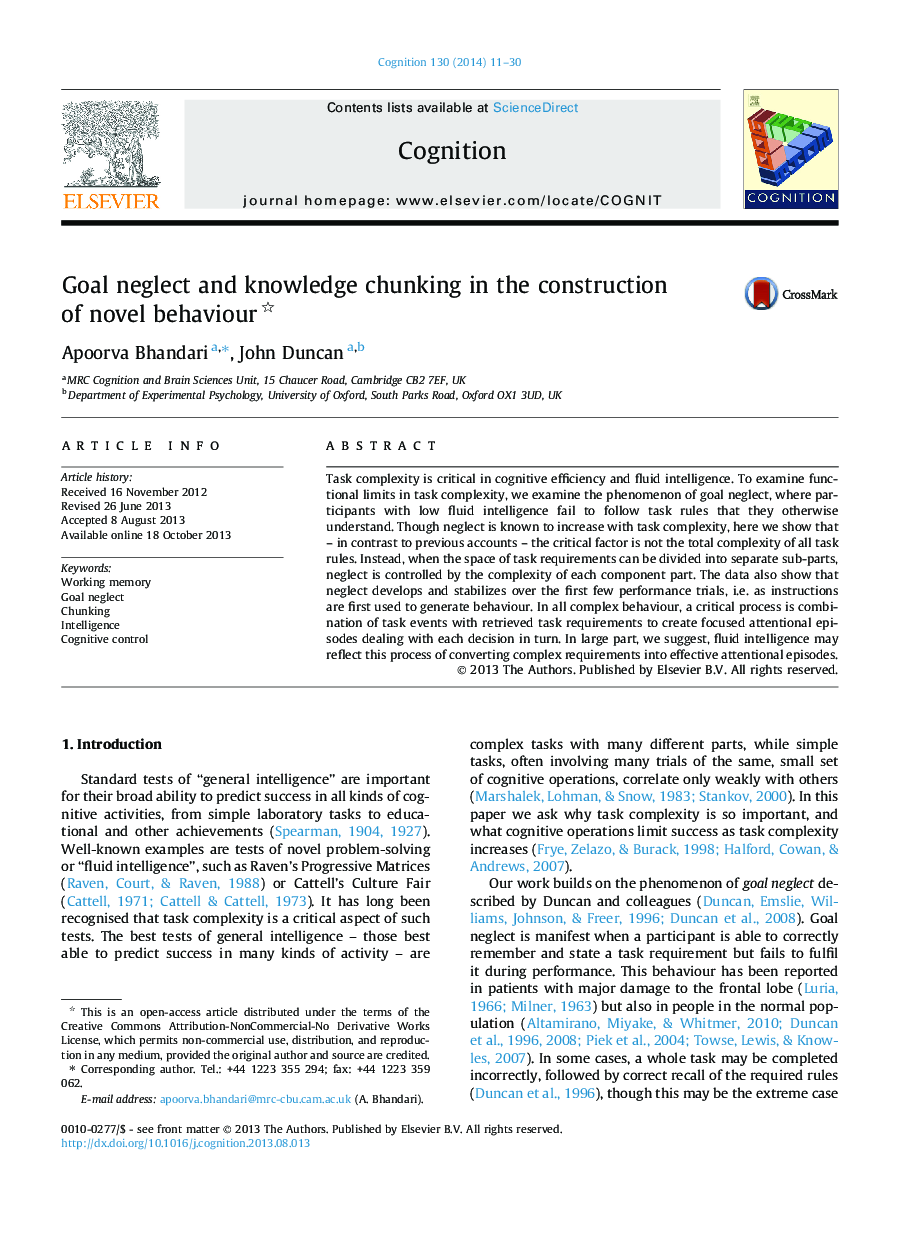| Article ID | Journal | Published Year | Pages | File Type |
|---|---|---|---|---|
| 10457763 | Cognition | 2014 | 20 Pages |
Abstract
Task complexity is critical in cognitive efficiency and fluid intelligence. To examine functional limits in task complexity, we examine the phenomenon of goal neglect, where participants with low fluid intelligence fail to follow task rules that they otherwise understand. Though neglect is known to increase with task complexity, here we show that - in contrast to previous accounts - the critical factor is not the total complexity of all task rules. Instead, when the space of task requirements can be divided into separate sub-parts, neglect is controlled by the complexity of each component part. The data also show that neglect develops and stabilizes over the first few performance trials, i.e. as instructions are first used to generate behaviour. In all complex behaviour, a critical process is combination of task events with retrieved task requirements to create focused attentional episodes dealing with each decision in turn. In large part, we suggest, fluid intelligence may reflect this process of converting complex requirements into effective attentional episodes.
Related Topics
Life Sciences
Neuroscience
Cognitive Neuroscience
Authors
Apoorva Bhandari, John Duncan,
